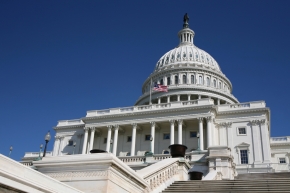Informing chemical safety policies

The U.S. has a history of stumbling from one tragic chemical mistake to the next. Examples include the widespread use of lead, asbestos, PCBs, flame retardants, and PFAS, which have resulted in large, costly, and prolonged public health crises. At Silent Spring, we are working to change that trajectory. To achieve that, legislators and other decision-makers need access to independent science. Most science in the environmental health arena is produced by industry; Silent Spring is one of the few environmental public health groups that is building a strong scientific case for making chemical regulations more health protective.
Examples of our work:
We co-hosted a workshop with Breast Cancer Action that brought together more than 65 scientists, advocates, and policy experts to share the latest science linking toxic chemicals with harmful effects on the breast, discuss how federal agencies can improve chemical safety testing, and collaborate on strategies to catalyze change.
We submitted more than a dozen expert scientific comments to the U.S. Environmental Protection Agency on its implementation of the Toxic Substances Control (TSCA) to help counter the chemical industry’s influence on EPA’s process to regulate chemicals.
Our in-person scientific testimony contributed to the decision by the U.S. Consumer Product Safety Commission (CPSC) to grant a petition to ban organohalogen flame retardants from upholstered furniture, mattresses, children’s products, and electronic casings sold in the U.S.
We provided scientific expertise to the scientific advisory board of the Toxics Use Reduction Institute (TURI) as it considered listing PFAS as a class under the Toxics Use Reduction Act (TURA)—a Massachusetts state program that has successfully helped businesses reduce the use of toxic chemicals in a wide array of industrial processes.
Not only are we working to put scientific evidence about chemicals and health on the record and ensure industry claims about chemical safety do not go unanswered, we are also working with other scientists, non-profit organizations, breast cancer activists, to ensure they have access to critical scientific knowledge as they push for stronger science-based protections for public health.
Funded by
News & Updates
2026
How science-backed regulations protect people from toxic chemicals in their everyday lives.
2024
Hundreds of chemicals that influence the development of breast cancer are used in everyday plastic items, according to new study by Silent Spring.
2021
Today, 67 of the nation’s leading PFAS science experts submitted a letter to the newly-confirmed EPA Administrator Michael Regan calling on him to institute a class-based ban on all PFAS except essential uses.
2021
The legislation was eight years in the making, with strong support from firefighters and advocacy groups. Silent Spring scientists provided the scientific foundation for the new law.